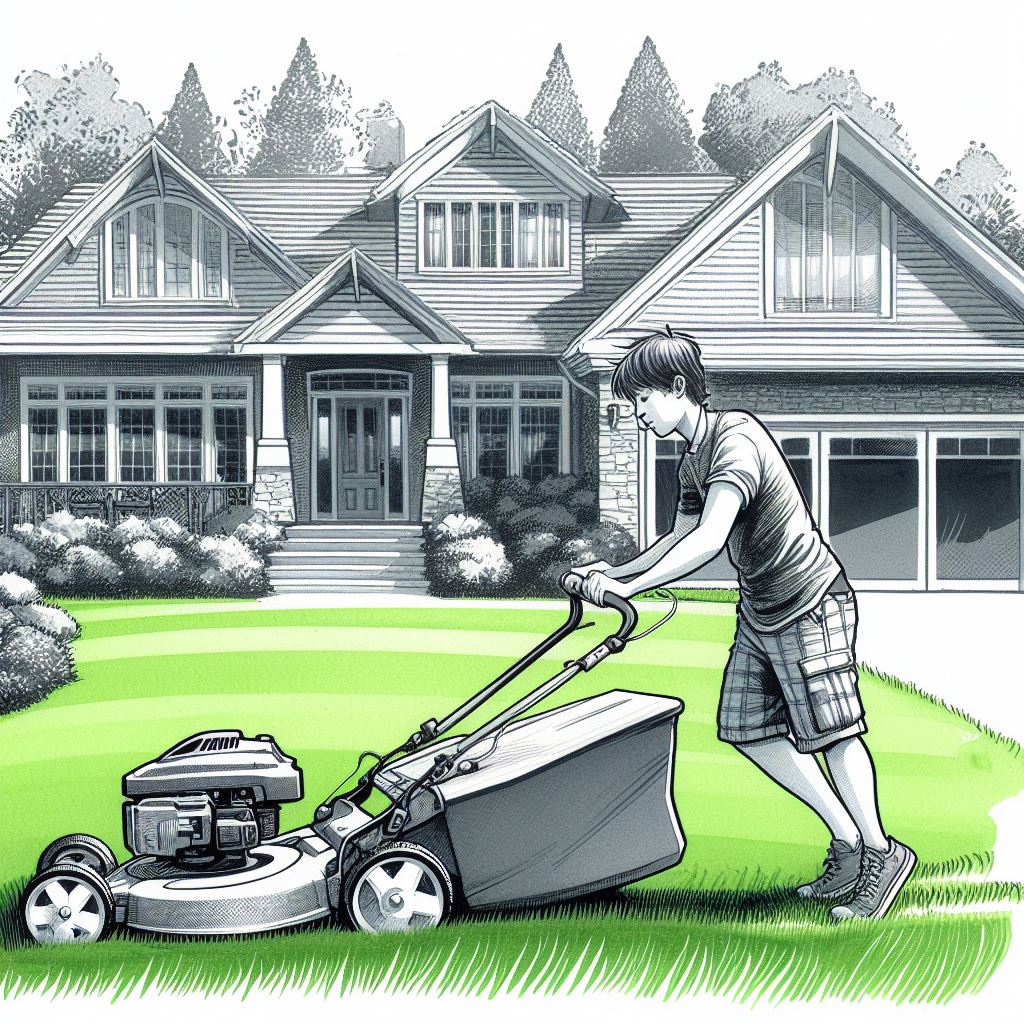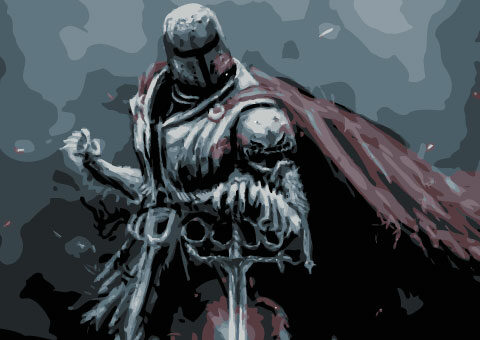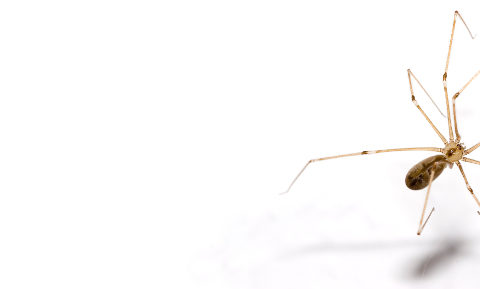by Mike Dell’Aquila
The summer after JP’s freshman year at St. Nilus the Elder Academy felt oppressive and interminable. Summers were supposed to be fun: three months off from school, nights that felt as though they’d never end, trips to beaches or lakes or reservoirs. Coming home after spending nine months at a private school was anything but a joyous occasion.
For one thing, his father was out of work, again, and his mother had thrown him out, again, though this time it might’ve been for good.
JP absorbed this news as best he could, certainly better than his attempt to reacclimate himself to life without air conditioning. In Easton, muggy days became muggy nights, and there would be no reprieve for days on end.
Out of fairness to his younger brother, with whom he still shared a cramped 8×10 foot bedroom, JP set their standing fan to Oscillate. Not that it made a difference or provided either one of them with any comfort. The stupid thing teased them with its quick bursts of what felt like a cool breeze, though the blades only recirculated the stale, humid air that had been suffocating him for weeks.
He missed the comforting hum of his dormitory’s air conditioner, the way he could wrap himself under the covers and still manage to wake up dry as a bone. Here, lying above his twisted, messy sheets, the sweat pooled beneath his head and the small of his back. His jaw hurt from clenching it. His ears rang, holding a steady, high-pitched note while his heart provided the rhythm for a fugue composed by rage itself.
Night gave way to morning, and he awoke to the sound of screeching birds and screaming bugs. He smelled. The whole room did. Dirty socks and body odor and the faint scent of mildew. The mélange disgusted him, as did Mark, who looked like a contented angel, sleeping without as much as a frown on his face. Mark didn’t know what they were missing. He’d never slept on sheets that touted their thread counts on the little labels at the bottom. He didn’t know that there were families out there so rich they could afford two houses, or that there were kids his age who’d never heard of collection agencies and been instructed by parents to let a ringing phone ring for fear of them.
Thursday morning was the one bright spot in his week. At fifteen, JP was still too young to get a proper part-time job, but he’d landed a lawn mowing gig with the Vanderbergs, the only family who’d responded to his ad in the church bulletin.
And the Vanderbergs weren’t just any family, either. Notorious as Mr. Vanderberg might’ve been for representing Blue Stone Electronics when they shut down operations, he still lived in a beautiful house set back on a perfect 1.5-acre lot in Clearwater Estates. He was a man with connections, a country club membership, and family roots first planted before the Civil War.
Working for the Vanderbergs provided JP with an opportunity to prove himself among a new echelon of people, to show that he was making good use of his scholarship to St. Nilus, and that even a poor boy could make something of himself if he pulled hard enough on his own tattered bootstraps.
The bike ride to the Vanderbergs’ gated development felt as though it traversed both space and time. His own street was lined with a mix of aging turn-of-the-century farmhouses and almost-identical postwar ranches. They didn’t have a Homeowner’s Association; they had a dammed creek instead of a chlorinated community pool.
The Vanderbergs’ wealth was no mystery, and since they’d decided to share some small portion of it with JP, he didn’t hold it against them as he marveled at all they could afford.
As a man, Mr. Vanderbilt lacked the size and girth of JP’s father. He was under six feet and he’d already succumbed to male pattern baldness. Still, as a well-paid lawyer with a hot, younger wife, the guy had the last laugh. JP struggled to see how this guy could be the villain that JP’s father and his drinking buddies made him out to be.
On the only occasion that Mr. Vanderberg interacted with him, he’d given him a firm handshake and showed him how to prime the mower’s pump. He’d explained how the mulcher worked—JP’s family had an old Toro mower with an attached bag he’d had to empty—and how the little flecks of cut grass created a canopy over the lawn, which slowed the evaporation of morning dew.
The lawn looked like Fenway’s outfield, and once JP saw the MiracleGro and the sprinklers in the garage, he discovered that there was more complicated alchemy at play. The Vanderbergs tended to their yard, or at least paid other people to do so. JP’s parents accepted their half acre just as it was; they did nothing to combat crabgrass or the scorched spots where the grass was so damaged it was little more than dirt.
The comparisons might’ve been unfair to his family, but he’d taken a surprising amount of pride in maintaining the Vanderberg’s lawn. Along with the gardener, and the maids that cleaned their neo-colonial once a week, JP felt as though he was now part of this estate—as help, of course, but the proximity to their lifestyle helped him better understand the lives of his classmates.
He’d settled into a nice routine, parking his Huffy in the garage, gassing up their John Deere mower, and following the lines in the lawn.
As June gave way to July, the heat and humidity meant that he’d sweat through his shirt almost immediately. He stopped to take off his shirt and tuck it into the back of his mesh shorts.
A few minutes later, Mrs. Vanderberg came hustling out of the house, her already thin lips pulled into a tight, tidy frown.
JP stopped the engine.
“May I ask what you think you are doing?”
The syntax threw him. Where he came from, people didn’t request permission to ask a question. They just went ahead and asked it.
“Isn’t today Thursday?”
Mrs. Vanderberg looked him up and down, turning red as she said, “That is not what I am talking about. JP, this is Clearwater Estates. We have standards. How do you think it looks for me to have a half-naked boy on my front lawn while Mr. Vanderberg is at work?”
“What?”
JP had heard the question. He’d been surprised by it, and wasn’t sure if he was inferring the right message.
“Put your shirt back on. Please.”
He apologized and put it on.
“Honestly, I expected more from a St. Nilus student.”
JP blushed. He hadn’t allowed himself to think of Mrs. Vanderberg in a sexual way, but now that she’d implied that there was at least a theoretical possibility of something forbidden, he found himself aroused by the idea, and the stern talking to.
Sighing, she added, “I suppose that I should’ve made the rules clearer for you, considering you are from Easton, after all.”
That insult carried no erotic charge. The insinuation that he was no better than the trashy hicks on his block gutted him. The hurt should’ve been mollified by his mother’s account, that she knew Laurie Vanderberg back when she was still Laurie Maurer and lived in a house every bit as small as theirs. JP’s mother had said all of this to knock the woman down a peg or two, but the revelation had been aspirational for JP. He was a striver, like his employer, and he’d find a way to use his brains to get himself out of Easton, just like Laurie Maurer had used her looks.
“Mrs. Vanderberg, I can’t help the fact that I’m from Easton, but—”
“But you basically broadcast that fact to the world when you act as though clothes are optional in polite society.”
JP squinted. Even he knew that rich people didn’t speak like that anymore.
The look on her face suggested she knew it, too, which might’ve been why she returned to the house without another word.
The nuns at St. Nilus took similar tones with troublemaking students, and he’d observed that the students who got off the easiest were the ones quickest to repent. If he wanted a better future, he’d have to go to war with himself and his own nature, not just his town and environment.
* * *
Mark was shooting hoops in the driveway when JP got home. He could handle the ball well, but there was no future in the sport for him. Their genetics didn’t offer the sort of height that was necessary, and Easton’s high school was known for football and wrestling. No collegiate scouts would waste the time checking out the Falcons’ basketball games.
JP thought he was being kind keeping these thoughts to himself. Mark hadn’t spent any significant time outside of Easton, so he couldn’t really grasp the fact that all of his dreams were long shots. Before completing his first year at St. Nilus, JP had indulged similar fantasies, but after he’d seen the kind of lives that CEOs and oncologists and judges could provide, he’d set his sights on lucrative, non-glamorous jobs that seemed more attainable for an intelligent kid willing to work hard.
“She locked us out again,” Mark said, as JP started walking toward the house.
“I need to shower,” JP told him.
His brother snorted. “Good luck with that.”
JP glared at the living room window. The loud box fan was going full blast.
When they were kids, old enough to spend time unsupervised, their mother would send them outside and tell them not to come back until lunch time. They’d happily run down to the creek and spent ridiculous amounts of time jumping off low tree branches into the sort-of pool that older kids had dammed years before.
Now their mother had to throw them out and deadbolt the doors behind them.
With their father gone, JP felt as though his lawnmowing gig entitled him to a new set of perks, like entering or exiting the house whenever he damn well pleased.
Neighborhood grownups like to tease him for being fifteen going on forty, but he didn’t see what was so funny. He killed himself at school, both in the classroom and trying to fit in; he worried about money, both his own and the family’s. In fact, he seemed to be more aware of his family’s problems than they were, or at least he was spending more time trying to do something about it.
His mother’s episodes must’ve made the neighborhood assume that she was on drugs. The screaming and weeping were loud enough for all to hear, or at least they had been once JP’s parents had decided that it was no longer worth the effort to close every window before launching into another epic fight. Drugs weren’t the problem, though. His parents couldn’t have afforded them even if they wanted to.
And, anyway, what she needed was real pharmaceuticals. The kind that most of the kids at St. Nilus said their parents were on. TV commercials made it seem so easy to get a prescription. Talk to your doctor today to see if Celexa is right for you. That kind of stuff. But a patient would have to first admit that there was a problem, which wasn’t something that his mother would ever do.
At the front door, he confirmed that what Mark said was true and that his mother was inside indulging whatever undiagnosed illness she’d learned to live with.
“This is so fucked up.”
“What is?” Mark picked up his dribble. He appeared to be genuinely curious.
Wasn’t it obvious? If not, why not? Why didn’t he hate his life half as much as JP did?
Still sweating and stinking, JP decided to ride down to the creek. Rinsing off in the cold water wasn’t the same as bathing, exactly, but he could at least wash off the grass and cool off a bit.
* * *
He rode down to a bend located at the border of a dairy farm and state-owned land. The current was a little stronger there, enough that the water turned white as it cascaded over the rounded rocks. He watched the water for a while, standing on the muddy bank in nothing but his plaid boxers. The creek was so clear that it seemed impossible that the water was too poisoned to be potable. For years, Blue Stone Electronics had dumped its effluent into this body of water, destroying the local ecology before it shuttered its operations and laid off half the town.
The rounded rocks were reminders of much older destruction. A prehistoric violence. Those glorified pebbles were all that remained from an ancient mountain chain that rose twice as high as the Appalachians. JP had learned all about this in Earth Science, how those mountains were destroyed over the course of eons, how water and salt found their way into tiny cracks and crevices and cleaved the rocks apart from themselves little by little over a timespan that was basically impossible for a kid to comprehend.
As he stepped onto the slimy rocks and waded in, he tried to remember how he felt in this same spot as a kid. The decaying vegetation hadn’t registered as gross, and they certainly hadn’t known that they were splashing each other with poison.
Back then, lush mountains had not suffered from hopeless, irreversible erosion, and fathers earned good salaries and came home from work on time. JP hadn’t been in Clearwater Estates, or heard of St. Nilus the Elder Academy, and had no idea about the myriad ways his life was deficient.
He heard splashing further upstream. Mr. Earls had been flyfishing and was wading back to the bank. He gave JP a wave, and JP returned the gesture, relieved that unlike Mrs. Vanderberg, his old neighbor was unbothered by his near nakedness.
* * *
The following week began like any other. The whole valley had slipped into a drought, which spelled disaster for some local farms, and it also meant that there’d been no relief from the heat and humidity. Sprinklers and MiracleGro and the canopy made from shaved grass protected the Vanderberg’s yard from yellowing or dying, and JP got right to work, fully clothed.
As he worked, he tried to steal looks of the house’s interior. The windows were like mirrors. The ones on the first floor reflected the front yard: the lawn and the sole oak tree, and the kid who once thought that his measly ten bucks a week could punch his ticket out of despondency. On the second floor, there was only sky, like the John Lennon song.
When he was finished with the lawn, he returned the mower to its spot in the garage. He liked it in there. Mr. Vanderberg had a designated place for everything and there weren’t any oil stains on the cement. Instead of mildew, there was a faint scent of cedar and citrus.
Mrs. Vanderberg left his money and a short note in an envelope taped to the door. Her handwriting was more juvenile than elegant.
The note thanked him for his good work and apologized for being too busy to give him his payment in person.
At first, he didn’t care. Money was money.
But he started to feel rebuked about halfway home. She didn’t have a job and had all sorts of domestic help, and her Lexus had still been parked in the garage. He assumed that she didn’t want to see him, that she was still angered or repulsed because of what he’d done the week prior.
He didn’t know what else to think.
At home, his mother was sitting at the kitchen table with a bunch of envelopes splayed out like giant playing cards.
JP tried to slip by and head straight for the shower.
“Look at the mess he left us,” she groaned.
He didn’t want to engage, but what choice did he have? Trying to avoid her only guaranteed that she would follow him through the house airing all of her grievances.
“He didn’t leave. You threw him out,” he told her.
“You don’t know what you’re talking about because you weren’t here. You were off at your fancy-ass school, too good for the rest of us.”
“That’s right,” JP said.
“You think you’re hot shit, but who’s the one putting food on the table or a roof over your head?”
“Those are like the fucking basics. And you’re barely doing it.”
“Well, it’s not like you’re helping out at all, even though you have no problem eating what you want when you want it.”
He glowered at her.
“Tell me, who’s the one who buys all of it.”
“You’re the grownup,” he snapped. “Supposedly.”
“You’ve got money.” She didn’t look like she was joking or bluffing.
“I earned it. It’s mine.”
“And I don’t earn mine?” When he scoffed, she added, “You want them to come and turn off our electricity?”
Seventy bucks wasn’t nearly enough to hang with the St. Nilus crowd. Those kids could find that kind of money in the cushions of their couches. But that wad of cash he kept in his underwear drawer was a symbol, a trophy, a sign that he would not end up in the same place as he started.
He knew his mom knew exactly how much money he had. That sort of arithmetic came easy to her; the calculus of budgeting for a whole household was where both of his parents struggled.
“Seventy dollars could almost buy us groceries for a week.”
He studied her face, unsure if she was taunting him about how small a sum it was, or shaming him for how much it cost to keep them alive. The idea that his lawnmowing money would end up as store-brand food they’d eventually piss and shit away made his head hurt.
“I will pay you back.”
“Sure you will,” he said.
“You think this is easy for me.”
He wasn’t sure if it was a statement or question. “If it wasn’t, you wouldn’t have done it. No one in this family ever does the hard stuff.”
“You’re a part of this family, too, you know.”
“Only as long as I have to be.”
She laughed. “With that attitude? Fucking fine by me.”
If spite were a currency, he thought, they’d all be rich as robber barons.
He marched into the bedroom and ripped open the top drawer of his shared bureau. Six ten-dollar bills plus the one still shoved into his sock. That’s all there was. That’s all his summer added up to.
Seven weeks ago, he saw the chance to start saving some money of his own, to get the Vanderberg’s to rave about the industrious kid who cut their lawn and maybe even write letters of recommendation someday. He saw a clear and promising road that led to the life he was actually meant to live.
Now, seventy bucks was seventy bucks. A meaningful amount to his mother, and what his classmates wasted on schwag. He pictured those guys, stoned and laughing their asses off. He’d always passed on grass, not out of a devotion to D.A.R.E., but because he’d had too much pride to mooch his way through life. Plus, he had his scholarship to consider, and already felt paranoid all the time.
“Here,” he muttered when he returned to the kitchen, tossing the money on the table.
“Thank you.”
She didn’t turn toward him, though her gratitude sounded genuine. Somehow, that made him feel worse.
* * *
Both Vanderberg garage doors were closed the following week. He got off his Huffy and didn’t bother with the kickstand. He saw the note taped to the door, like the one from last week. There was no money in it this time, just a note in Mrs. Vanderberg’s girlish script to let him know they were no longer in need of his services.
There wasn’t any additional context, or good wishes for the future.
He thought of his father, wondering if he now understood the shock and rage his old man was forced to endure. JP had taken pride in his work and treated their lawn like it was his own—no, better than anything he owned. He’d counted on that work and the money, and he’d held up his end of the bargain.
Had this really been about the shirt? That was two weeks ago, and he’d put it back on as soon as she’d told him to.
He felt entitled to an explanation. He was ready to apologize for anything and agree to any new rule Mrs. Vanderberg needed to implement. The situation was salvageable. It had to be. These people had complimented him on his good work, and his speed, and neither of those things had changed.
He went to the front door and rang the bell. The chimes were audible, but he didn’t hear footsteps. A second attempt would be too aggressive: she either heard him or she didn’t.
She opened the breezeway door. The screen remained closed, separating them like the booths in St. Nilus the Elder’s Church.
“We left a note for you. Didn’t you see it?”
“I did, but—”
“I’m afraid our decision is quite final.”
He clenched his jaw. Quite final? This woman graduated from Easton High with his parents, and no one spoke like that over there.
“But why?”
She let out a long sigh. “I’d rather not get into all the details. Mr. Vanderberg and I have decided to go in a different direction with regard to our lawn care, and I would appreciate it if you could respect the fact that this it is our choice to make.”
“What did I do?”
She rolled her eyes before relenting. “Over the weekend, Mr. Vanderberg went out to the garage to grab a new handle of gin, and you can imagine his surprise when he discovered that it was missing.”
“What’s that got to do with me?”
She frowned. Even through the screen, he could see the icy look. He didn’t know how his classmates did it, confessing all of their moral failings to the semi-veiled faces of the same priests who taught sex-ed and coached the basketball team.
“JP, honestly. Must you make me say it?”
“You think I took it?”
“You’re the only one who is allowed to be on our property unattended.”
“What would I even do with a bottle of gin?”
“Oh, please. I was young once. I know what it’s like to be your age in Easton. Don’t act as though you’re so innocent.”
“Mrs. Vanderberg, I swear I didn’t take it.”
She hesitated. “Maybe not, but try to imagine how uncomfortable it makes us having strangers on our property using our tools and all of a sudden our things go missing. If you had anything worth stealing, you would feel the same way.”
He knew he had to leave before he said or did something that would make the situation worse. He still held out hope that the gin would turn up or that they’d find the person who took it.
“Okay.” He was barely able to voice the word, adding, “I understand.”
True understanding would come later, but at the time he wanted to say something besides I’m sorry because he wasn’t. Or at least he was only sorry for himself: because he’d lost his only source of income, because he thought he could trust people like the Vanderbergs to help him find a way out of Easton.
He got back on his bike, and rather than riding home, he pedaled all the way to the base of Blue Stone Ridge and decided to put his cheap, so-called mountain bike to the test. He wanted to ride all the way up, to summit, and to remind himself of the lives that existed beyond the boundaries of his valley.
* * *
Easton looked like a model train town when viewed from above. He could see the old brick buildings rising up from Main Street, but couldn’t count the number of vacant storefronts from that distance. If it weren’t for the empty parking lot, you could also believe that Blue Stone Electronics hadn’t sent half its workforce straight to the welfare line. Even from there, though, he could still see the differences between the tiny homes in his neighborhood and the ones in Clearwater Estates. He wondered if you could even see the division from space.
He felt foolish for thinking it could be penetrated. The line could be crossed, sure, but there was a difference between being on the other side and belonging there. Mrs. Vanderberg must have known that, too.
The discomfort that she may have felt in her new life didn’t explain why things had taken such a strange turn. He refused to believe that she thought he was stupid enough to steal from them, and not only that, but to ride all the way home with a green handle of gin on full display.
Why hadn’t they blamed the gardener or maid? Why was she so certain that it was a high school kid on a Huffy?
He wanted to look East and see all the way to Princeton, but there were only more valleys and hills blocking the horizon. The old timers in Easton, the ones who’d come up during the Depression, they loved to talk about the glorious sunrises, the meadows at dusk, things like that. Those old folks weren’t preoccupied with upward mobility, nor did they know that these beautiful hills were actively crumbling. They too would be smooth stones in a creek bed someday.
* * *
He went back home because he had no better place to be, and because that was also where he could find a pen and paper. He’d come up with the idea of writing the Vanderbergs a note in return, convinced that if they could see how neat his penmanship was and how carefully he’d chosen his words, they’d see that he couldn’t have been the one who’d stolen their alcohol.
The door was unlocked and Mark was inside eating cereal and watching SportsCenter.
JP cocked his head.
“In bed,” his brother said, answering his unvoiced question.
Bed days were the best days, if the boys could tune out the intermittent sobbing from behind her closed door.
He was tempted to pour himself a bowl of the cereal he paid for, but he was still half-crazed with his idea of writing this letter. He fished through the junk drawer for a pen and small notepad. Sometimes his mother made lists for chores or grocery items.
The notepad was nowhere to be found. There were pens and pencils, stubby crayons and soy sauce packets, stray paperclips and rubber bands, a couple of the plastic clips from the ends of bread bags mixed in with crumpled receipts, take out menus, his father’s wedding band, and a flashlight without batteries. He could never find what he needed. Not in this house. Not in this family. No one ever put things back where they belonged, or restocked the things they’d run out of.
He couldn’t be like the rest of them and give up without at least trying to punch back.
At his mother’s door, he asked where the paper and the envelopes were.
“What do you think this is, Wal-Mart?”
“This is serious, Mom.”
“What do you need it for, anyway?”
“I got fired. I got blamed for something I didn’t do, so if you want help with all the bills and shit, you need me to help me get my job back.”
She didn’t respond right away, though he heard the mattress springs. When she opened the door, there were clothes all over the carpet, a mess she hadn’t bothered herself with since she threw his father out.
“So now you can’t hold down a job, either.”
“It wasn’t my fault.”
“It never is, is it? Not yours. Not your father’s. Just mine, right?”
“I just want a notepad and envelope, okay?”
“So you can do what, exactly? Beg for forgiveness? Ask them to adopt you?”
He told her what happened, starting with the open garage door and the series of notes.
She laughed. “I’ve got news for you. A letter isn’t going to change a damn thing.”
“But what if I just apologize and ask for another chance?”
She looked at him as though he were the most pitiable member of the family, maybe the saddest creature in the world.
That look would stick with him for a while. Every time he felt himself bending over backwards at St. Nilus, Carnegie Mellon, and his quote-end quote good jobs in the city, the memory would remind him of just how shallow he was, and how his mother knew it.
He’d continue going through life performing, cruising through his twenties and thirties, accumulating status and wealth and the occasional industry award, before middle age presented him with a career plateau, a lost job, and a divorce. After relocating, taking a lesser job for lower pay, and remarrying, he’d eventually take his mother in, and when his second wife asked her what JP had been like as a kid, she would choose to tell this story, which he’d put away by then.
He’d remember the shame and the anger.
He’d remember the feeling that a better future lay just around the bend.
He’d remember his mother telling him that if he really wanted to write a letter to that stuck-up bitch to make sure that he asked her what she planned to do when another bottle of gin went missing and she had no one else to blame.








![By Toby Hudson (Own work) [CC BY-SA 3.0 or GFDL], via Wikimedia Commons](https://www.greylockglass.com/wp-content/uploads/2016/09/cantaloupesjpg-480x290.jpg)
